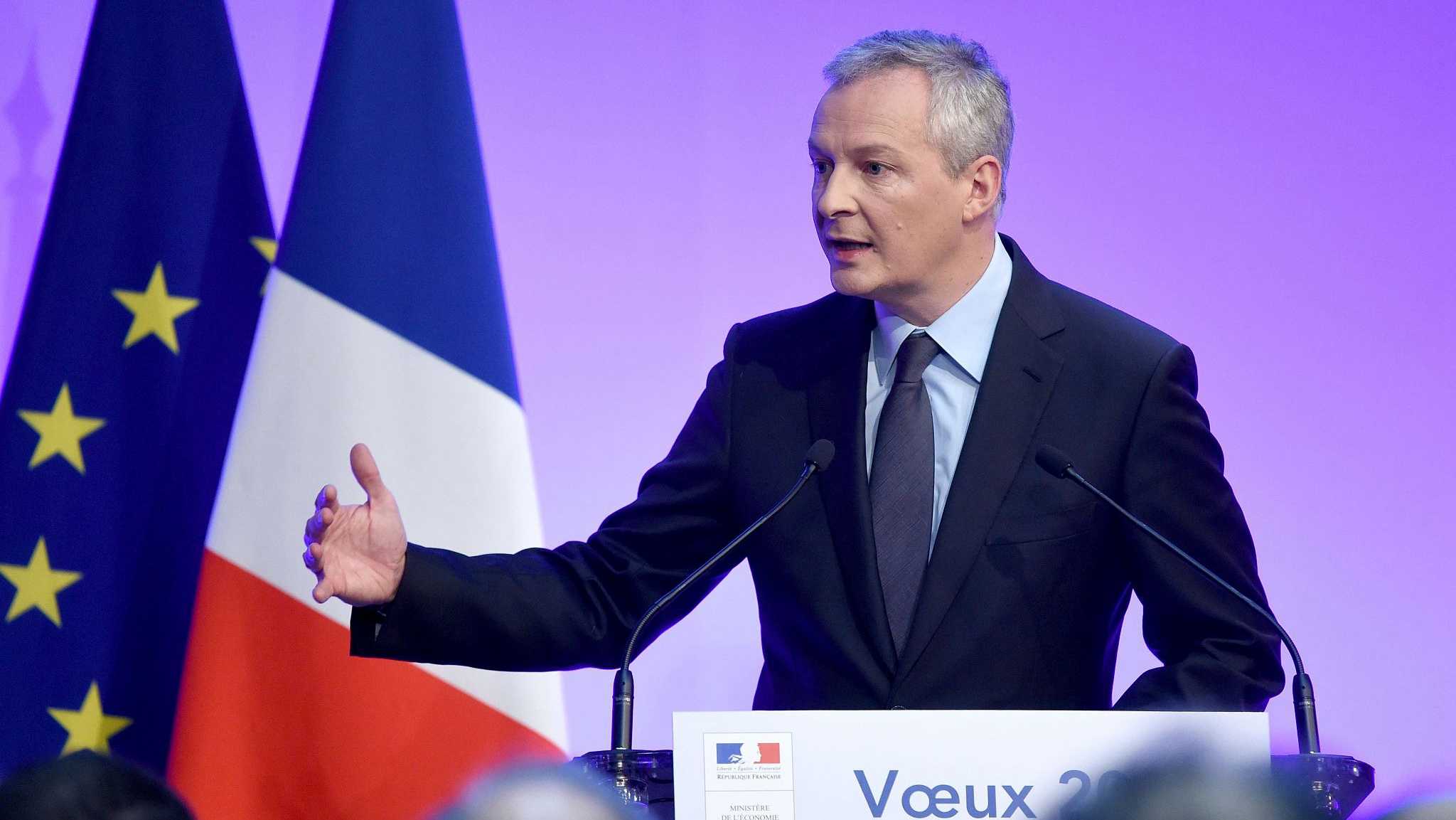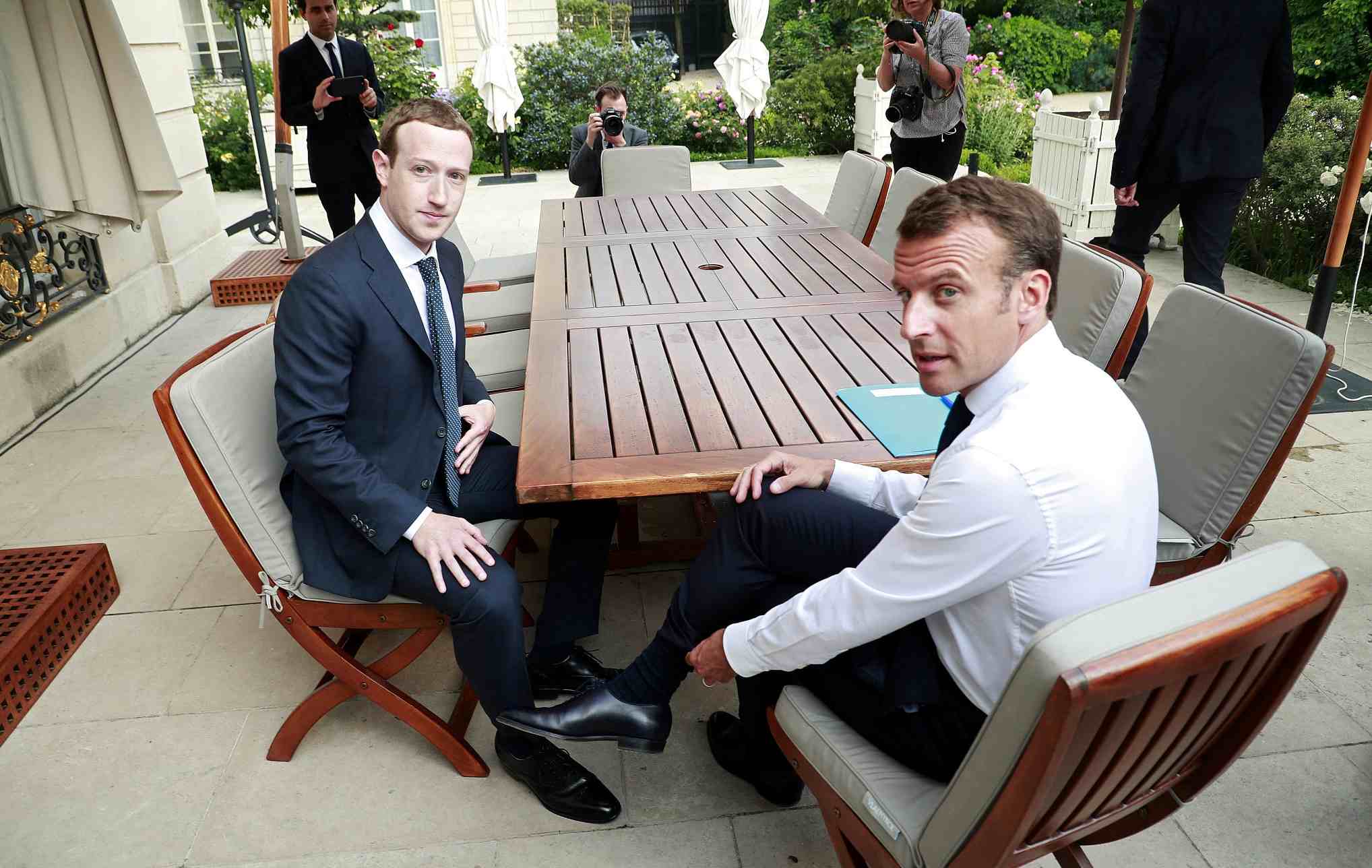
Business
10:43, 19-Dec-2018
France to push ahead with digital tax from January 1
Updated
09:55, 22-Dec-2018
CGTN

Tech giants like Google, Apple, Facebook and Amazon will face new tax laws in France from January 1, with French Finance Minister Bruno Le Maire confirming the country would push ahead with its own regulations as Brussels struggles to come up with an European Union (EU) wide levy.
France has been driving
hard for a new so-called "GAFA tax" – named after Google, Apple, Facebook and
Amazon – to ensure the global giants pay a fair share of taxes on their massive
business operations in Europe.
"The tax will be introduced no matter what on
January 1 and it will be for the whole of 2019, for an amount that we estimate
at 500 million euros (570 million U.S. dollars)," Le Maire told a press conference in Paris.
In addition to taxing direct sales, France will also require the companies to
pay a levy on "advertising revenues, websites and the resale of private data,"
he said, after a meeting with Russia's economic development minister Maxim
Oreshkin.
Under EU law, American technology titans such as Google and Facebook
can choose to report their income in any member state, prompting them to pick
low-tax nations like Ireland, the Netherlands or Luxembourg.

Facebook's founder Mark Zuckerberg meets with French President Emmanuel Macron at the Elysee Palace in Paris, France, May 23, 2018. /VCG Photo
Facebook's founder Mark Zuckerberg meets with French President Emmanuel Macron at the Elysee Palace in Paris, France, May 23, 2018. /VCG Photo
Such firms, on
average, pay a nine-percent levy, compared to 23 percent for other businesses,
according to Margrethe Vestager, the EU competition commissioner.
The low tax
rates have caused anger among voters in many European countries, but the
28-member bloc is divided on how to tackle the issue.
Ireland, which hosts the
European headquarters of several U.S. tech giants, leads a small group of
otherwise mostly Nordic countries that argue a new tax could lead to reprisals
against European companies and stoke anger in the U.S.
But Paris argues the
measure would be a vote-winning accomplishment for mainstream EU politicians
before the European Parliament elections next May, in which anti-Brussels
populists could do well. Any tax changes must be approved unanimously by member
states.
France and Germany had agreed this month to
introduce a scaled-back measure that would come into effect in 2021. It would
set a three-percent levy on advertising sales only, and would come into effect
only if a broader deal is not reached.
The Organization for Economic Cooperation
and Development (OECD), which groups open-market democracies, is trying to forge
a global solution to ensure Internet groups are taxed in the countries where
they do business.
Le Maire said he was still hopeful an EU-wide agreement could
be reached by March. It would target companies with worldwide annual turnover
above 750 million euros, mainly U.S. giants such as Facebook, Google, Twitter,
Airbnb and Uber.
"We are fully determined to win a unanimous European decision,"
he said, adding that Paris and Berlin would work together to convince those in
Europe still opposed to the tax.
Policymakers across the world have struggled
over how to tax the U.S.-based giants who dominate their sectors internationally,
but who often route their revenues and profits via low-tax jurisdictions to
reduce their liabilities.
EU member states such as Britain, Spain and Italy are
also working on national versions of a digital tax, while Japan, Singapore and
India are planning their own schemes.
Responding to Le Maire's statement, a
spokesman for Facebook told AFP: "We continue to respect our fiscal obligations
as set out by French and European legislation."
Source(s): AFP

SITEMAP
Copyright © 2018 CGTN. Beijing ICP prepared NO.16065310-3
Copyright © 2018 CGTN. Beijing ICP prepared NO.16065310-3